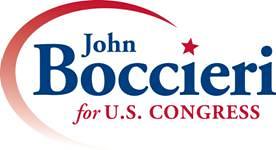One of the popular lines that the Republicans come out with every time they campaign against Democrats is the old “they are going to raise your taxes” schtick. Sometimes it works, other times it doesn’t. Quite frankly, it’s getting old. Lately, it hardly ever works (as evidenced by their losses in 2006 and 2008).
So when they claimed in a recent ad targeting NY-23 Democratic candidate Bill Owens that he was for raising taxes, it caught FactCheck.org’s attention.
Here is the ad:
Factcheck.org set the record straight regarding this claim:
The announcer misleads, however, when he says: “Now, Bill Owens wants to help Nancy Pelosi raise your income taxes.”
As support, the NRCC cites Owens’ Web site, where he says that he supports “allowing the Bush tax cuts for the wealthy to expire.” The NRCC also cites a brief from the National Center for Policy Analysis, a group whose stated goal “is to develop and promote private alternatives to government regulation and control.” The paper describes the effect on small businesses if they faced three simultaneous tax hikes.
We know of no one who has called for enacting all three of the proposals laid out in the paper, but we needn’t venture further into that tangle. Suffice to say that the only tax increase Owens has said he supports is the one above, allowing the expiration of the tax cuts for the “wealthy,” which is scheduled to happen in 2010. (Under Bush, the top marginal tax rate was cut from 39.6 percent to 35 percent.)
What’s “wealthy”? Owens’ Web site doesn’t specify. During his presidential campaign, though, Barack Obama used a threshold of individuals making $200,000 or more, and households making at least $250,000. Under those limits, how many constituents of the NY-23 would be affected by Owens’ proposal?
Not a whole lot. According to the most recent Census data, 2,728 households in the district had a total income of more than $200,000 in 2007. That’s just 1.1 percent of all the district’s households. Average household income was $52,801.
We’re not minimizing the fact that those relatively few households might be unhappy about the prospect of seeing their income taxes go up. We’re just saying it would affect, well, relatively few. Which is a lot less than the ad would have you believe.
Amazing what lengths the Republicans will go just to make this claim.
